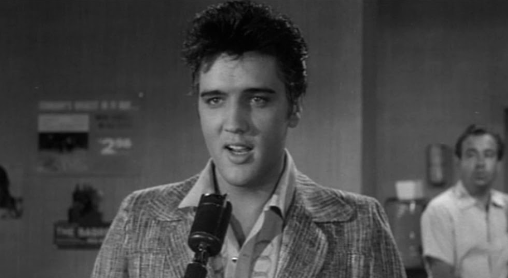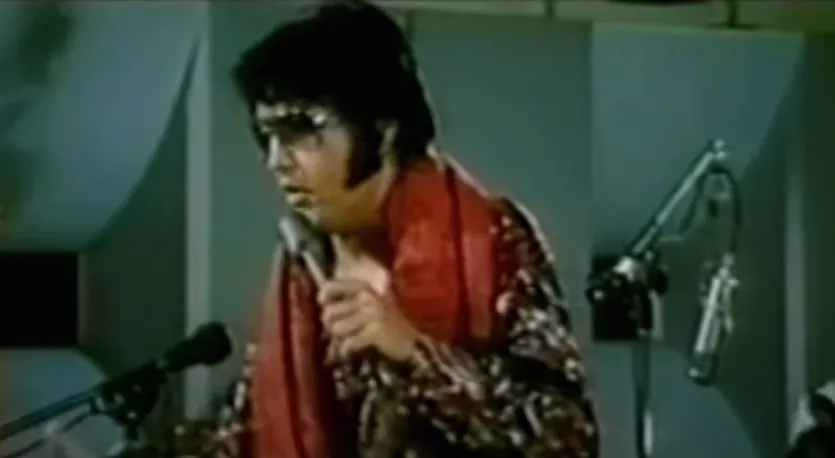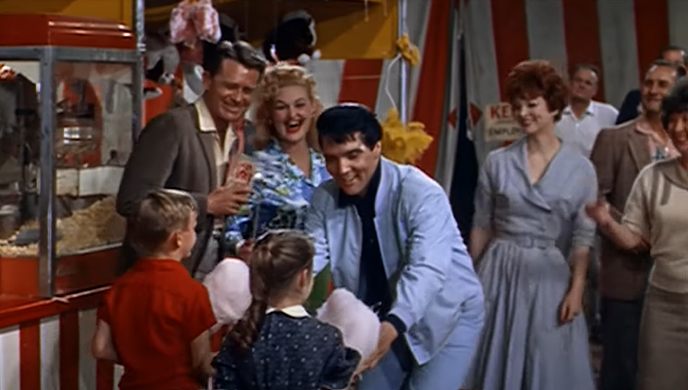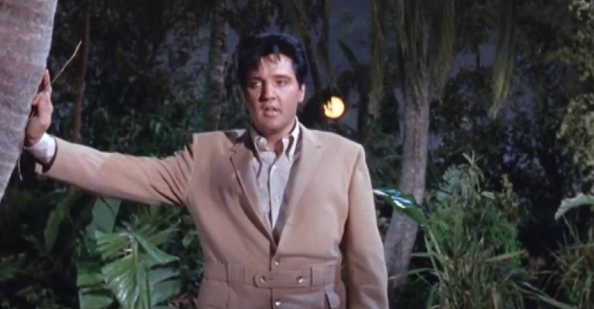The Enduring Legacy of "Hound Dog" by Elvis Presley: A Cultural Phenomenon
(watch the video below)
Elvis Presley's "Hound Dog" stands as one of the most iconic songs in the history of popular music. Released in 1956, it catapulted Presley to unprecedented fame and solidified his status as the King of Rock 'n' Roll. Beyond its initial success, "Hound Dog" has permeated popular culture, leaving an indelible mark on music, society, and art. We explores the multifaceted impact and enduring legacy of "Hound Dog" by delving into its origins, its cultural significance, its influence on subsequent generations of artists, and its lasting resonance in contemporary society.
The origins of "Hound Dog" trace back to the blues. Written by Jerry Leiber and Mike Stoller, two Jewish songwriters from Los Angeles, the song was first recorded by blues singer Big Mama Thornton in 1952. Thornton's version, characterized by its raw energy and visceral vocals, laid the groundwork for Presley's rendition.

When Elvis Presley recorded "Hound Dog" in 1956, he infused it with his electrifying stage presence and unique vocal style, transforming it into a rock 'n' roll anthem. Backed by his band, the Blue Moon Boys, Presley's recording captured the essence of rebellion and youth culture, resonating with a generation hungry for change and self-expression.
"Hound Dog" was more than just a hit song; it was a cultural phenomenon. Its release coincided with a pivotal moment in American history, marked by the rise of teenage rebellion and the emergence of rock 'n' roll as a potent force in popular culture. Presley's provocative performance of "Hound Dog" on The Milton Berle Show in June 1956 sparked controversy and captivated audiences nationwide. His suggestive dance moves and rebellious attitude challenged societal norms and ignited debates about race, sexuality, and cultural appropriation.
Moreover, "Hound Dog" served as a catalyst for the integration of popular music. By covering a song originally performed by a black artist, Elvis Presley helped bridge the racial divide in the music industry and paved the way for future collaborations between black and white musicians. Despite facing backlash from conservative critics, Presley's crossover success demonstrated the universal appeal of rock 'n' roll and its ability to transcend racial barriers.

The impact of "Hound Dog" extended far beyond the realm of popular music. Its infectious melody and catchy lyrics inspired countless artists across various genres, from blues and soul to punk and hip-hop. Cover versions of the song have been recorded by artists as diverse as The Beatles, Jimi Hendrix, and Beyoncé, each putting their own unique spin on Presley's classic.
Furthermore, "Hound Dog" became a symbol of rebellion and counterculture, influencing artists and movements advocating for social change. Its raw energy and defiant spirit resonated with activists fighting for civil rights, women's liberation. The song's enduring popularity ensured its place in the cultural zeitgeist, its message of defiance and individualism continuing to inspire generations of artists and activists.
Six decades after its release, "Hound Dog" remains as relevant as ever. Its timeless appeal transcends generational boundaries, captivating new audiences and reaffirming Presley's status as a cultural icon. The song's longevity can be attributed to its universal themes of rebellion, desire, and freedom, which continue to resonate with listeners of all ages.

Moreover, "Hound Dog" serves as a reminder of the power of music to provoke thought, challenge norms, and spark social change. In an era marked by political polarization and social unrest, its message of defiance and individuality resonates with those seeking to challenge the status quo and make their voices heard.
In conclusion, Elvis Presley's "Hound Dog" stands as a testament to the transformative power of music. From its humble origins in the blues to its iconic status in the annals of rock 'n' roll history, the song has left an indelible mark on popular culture. Its enduring legacy serves as a testament to Presley's influence as an artist and a cultural icon, ensuring that "Hound Dog" will continue to be celebrated and remembered for generations to come.
Video
Lyrics
Let's sing along with the lyrics !
You ain't nothin' but a hound dog
Cryin' all the time
You ain't nothin' but a hound dog
Cryin' all the time
Well, you ain't never caught a rabbit
And you ain't no friend of mine
Well, they said you was high-classed
Well, that was just a lie
Yeah, they said you was high-classed
Well, that was just a lie
Yeah, you ain't never caught a rabbit
And you ain't no friend of mine
You ain't nothin' but a hound dog
Cryin' all the time
You ain't nothin' but a hound dog
Cryin' all the time
Well, you ain't never caught a rabbit
And you ain't no friend of mine
Well, they said you was high-classed
Well, that was just a lie
Yeah, they said you was high-classed
Well, that was just a lie
Well, you ain't never caught a rabbit
And you ain't no friend of mine
Well, they said you was high-classed
Well, that was just a lie
Ya know they said you was high-classed
Well, that was just a lie
Well, you ain't never caught a rabbit
And you ain't no friend of mine
You ain't nothin' but a hound dog
Cryin' all the time
You ain't nothin' but a hound dog
Cryin' all the time
Well, you ain't never caught a rabbit
You ain't no friend of mine
You ain't nothin' but a hound dog



